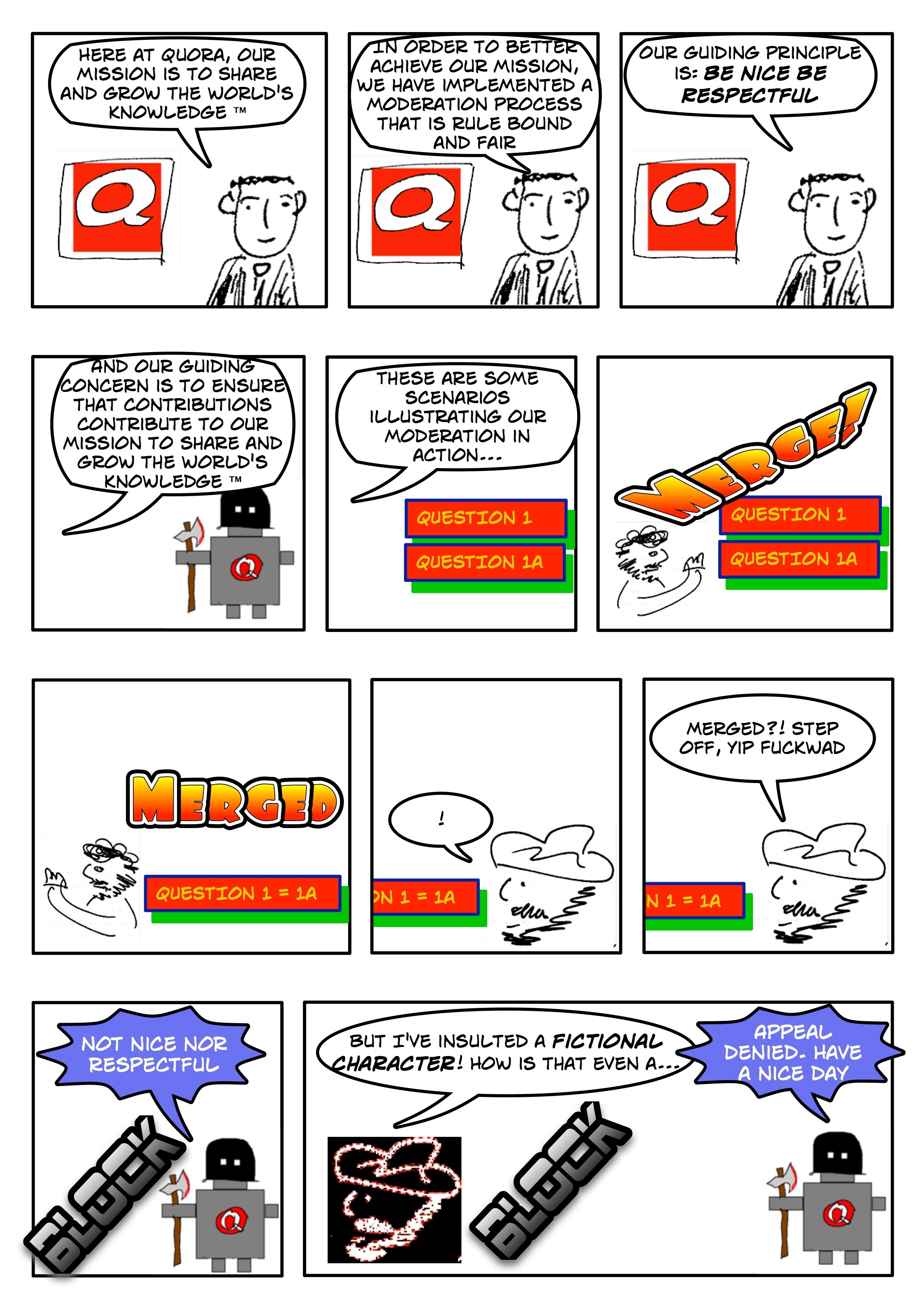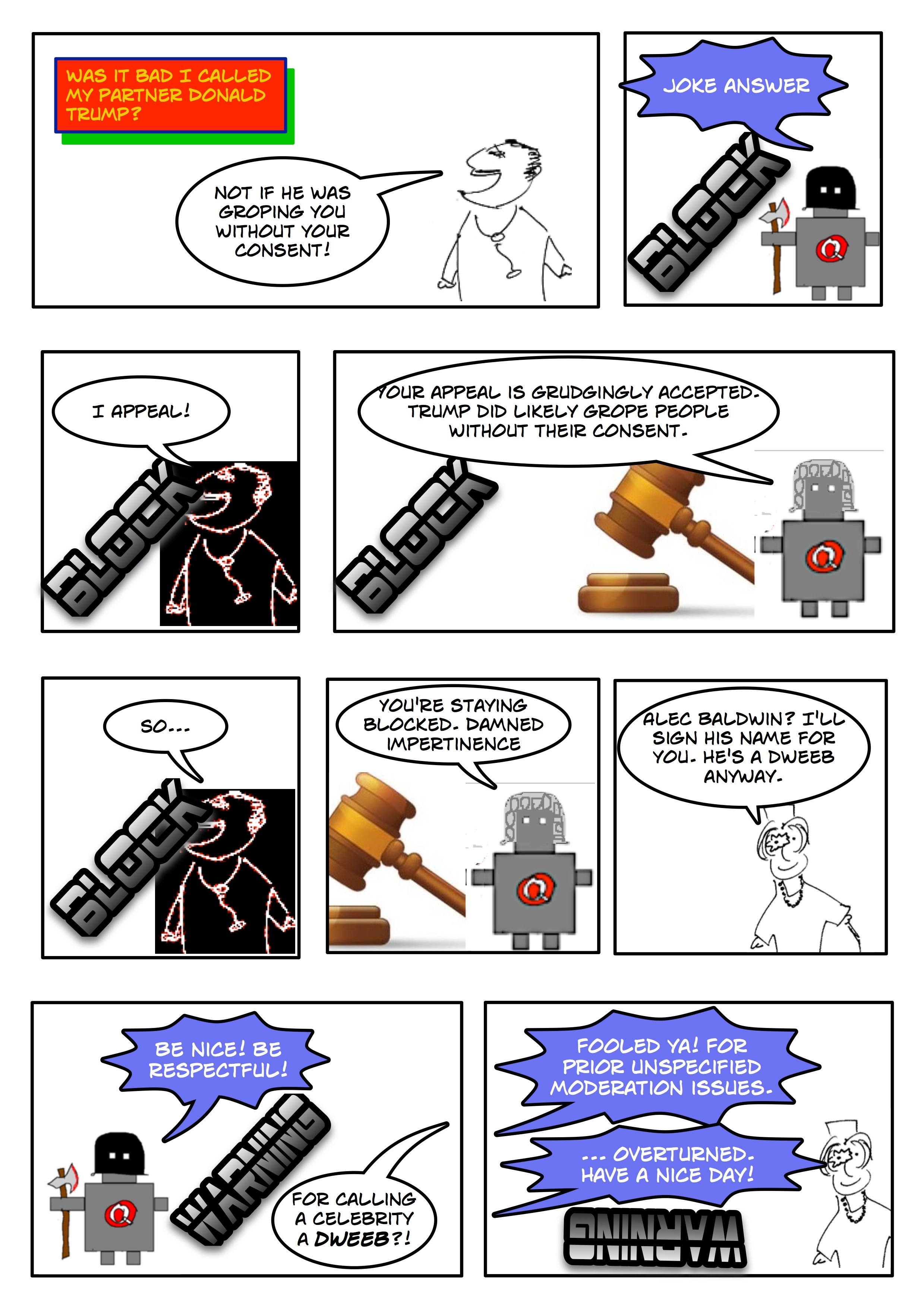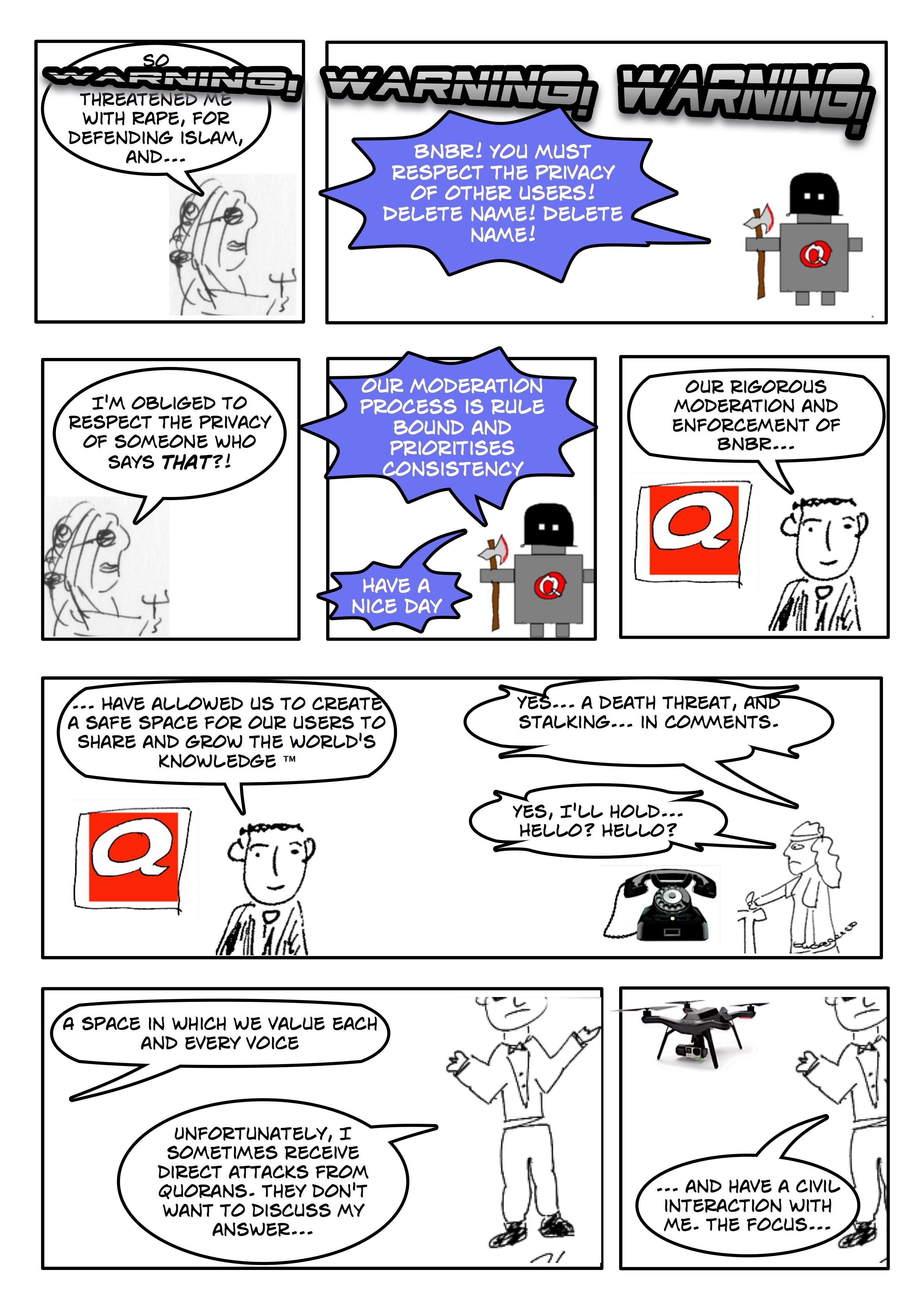Per my labels of the Villines tiers (Eric Villines’ answer to What are the different “tiers” of Quora writers (related to number of views)?), I am now a Popular (or Addicted) writer:
- 1011 followers
- 860k views in the past month
Just… noting it.
Per my labels of the Villines tiers (Eric Villines’ answer to What are the different “tiers” of Quora writers (related to number of views)?), I am now a Popular (or Addicted) writer:
Just… noting it.
I’ve been contemplating writing about who I am here for a little while. Partly because it’s some overdue self-therapy, as I’m in an odd place now in life—at something of a turning point. Partly because I’m making new friends here, who don’t actually know that much about who I am.
The pretext for this came up at Nick Nicholas’ answer to Who is Nick Nicholas?, a question I will once again thank Pegah Esmaili for—even though I did go asking for it at Nick Nicholas’ answer to Who is Michael Koeberg?
There will be a post on here for each of the following:
For Kaan Kılıçaslan.
I was born in Launceston, Tasmania, in 1971, to a father who had migrated from Cyprus and a mother who had migrated from Crete. We moved to Crete when I was 8. We moved back to Melbourne when I was 12. I’ve lived there since, but for 6 months in Greece in 1995, and living in Irvine, CA 1999–2001.
That makes me bi-cultural, I guess, which is a common thing in the diasporas of the world. It makes me somewhat atypical for the Greek diaspora in Australia, which trickled to a halt in 1975 (and restarted a couple of years ago). By living in Greece in the early 80s, and by retaining an intellectual interest in Greek culture, I’m more familiar with Greece than my generation of Greek–Australians.
Thank God for the Modern Greek collection of the University of Melbourne. And Thank God I got to it while that was still possible; it’s been in offsite storage for a decade now.
My history means that I’m neither fully Greek nor fully Australian. When I was doing Modern Greek in high school, Greek–Australian literature and commentary was awash with people of my generation up, bemoaning the fact that they were culturally adrift, and couldn’t call either side fully home.
That struck me as dramatic folderol. A few years later, when I had more perspective, and I understood it better. I will never grok cricket: if you don’t get it by 12, you won’t. I will never feel quite at home in Greece: they don’t act like I act. The clash between my parents’ fearful defensive upbringing of me and my liberal surroundings had landed me with a fair bit of baggage, some of it certainly sexual: any Australian TV soap I see, I reflexively wince at the bogan sex addicts.
But you know, feeling at some distance from your fellows is not a bad thing. I have baggage, and certainly didn’t get enough sex in my 20s, but I don’t feel debilitated by it. I think it helps me more analytical, more considered about how identity works. And being bi-cultural, I feel something of a responsibility to explain things on forums like this. To act like a bridge. It’s a useful thing, and I appreciate the other bridges I have encountered here.
My cultural grounding has been Greek, and Diaspora Greek at that. I got to see the very tail end of Greece as a third-world country in 1980, with donkeys in the village and minimal westernisation, with intact dialect and entrenched patriarchy and matriarchy divides. I’m grateful I saw it. I’m grateful to trace some of my emotional lineage to it.
Since the diaspora acts as a time capsule, my upbringing in Australia was not that far from the village I lived in in 1980. A lot about how Greece has changed since the 80s strikes me as odd. Dimitra Triantafyllidou has been a wonderfully patient instructor to me, in helping me catch up: yes, they have standup comedy in Greece now, who knew. But it’s one axis of distance.
The other is that a lot of my knowledge of Greek culture since has been book-learning. It’s been thorough, it’s been enthusiastic, but it has also been very intellectualised. My hyperdemotic slang owes more to the books of Nikos Tsiforos than to anything I heard on the street. I’ve savoured the best of Modern Greek literature; but I’m not comfortable telling a funny story in Greek.
(And I was proud as punch, during my honeymoon, when I was able to recount to my Greek relatives Nick Nicholas’ answer to Where did you meet your spouse? Booze helped.)
But my values were formed in Australia. I view the world as an Australian. My loyalty is to Australia, my national pride is Australian, and it is all the stronger because I haven’t had the fallback of Anzac and damper to fall back on as a mythology. I’m Greek, I know all about mythologies. I am an Australian citizen; I know what that truly means: Nick Nicholas’ answer to Do Australians like being Australian citizens?
When I came back from 6 months in Greece during my PhD in 1995, I announced to my parents that I could never live in a country where the civil service was that dysfunctional. My parents where agog: why would I give a shit about the civil service?! Greeks know how to live, man!
And yes, yes they do. But that’s not the life I have been formed to value. I value the life my fellow citizens value, here in Australia. I value order, and the rule of law, and the dependability of government services, and an uneventful civic life, and a healthy sarcasm towards the folly of the world.
Clarissa Lohr in PM, incidentally, wondered whether I failed to take to life in the US so completely, because my stock of identities was full already. Nah, it’s that I moved to the States at 28, formed no real friendships with locals, and I was stuck in fricking Irvine CA: Nick Nicholas’ answer to What is it like to live in Irvine, CA? But you know, two is plenty already to keep in your head.
Pegah is an IT student, in her early twenties, living in a town in Iranian Azerbaijan. (She’s mentioned it here, and it wasn’t Tabriz, but I’m not doxing her. Besides, Quora Search.) She is a metalhead, she by her own admission finds it difficult to smile for photos, she has genocidal urges against men, and she is a… no, it would be inconceivable for her to be an unbeliever: she is a potato-chip worshipper.
(From one of her posts, saying that you can be a potato-chip worshipper, and the mullahs will leave you alone in Iran, so long as you don’t challenge their authority.)
I met Pegah via our mutual friend Lyonel Perabo, who has his own… fantastical account of Pegah as another response here.
Pegah is likely the best known Iranian on Quora. Certainly the best known to me. And Pegah plays a valuable role on Quora, of explaining Iranian and Azeri attitudes, Iranian daily life, Azeri and Iranian culture, to outsiders.
But to reduce Pegah to an Iranian, or an Azeri, or an explainer, is to insult her, and I will not. Not because she’ll threaten me, whatever our banter might indicate. But because I respect her. And because we’ve had wonderful exchanges here, trying to work out how similar our respective cultures are; swapping YouTube videos, quoting poems, and recognising the joy it gave us to share them with each other.
Pegah’s name means Dawn, but she’s not a daybreak; she’s a burning noon. She is passionate, and she is acerbic, and she is proud. It’s the pride that I admire most, all the more because it is tempered through her cynicism. She is proud to be Torki, and proud to be Irani, and proud to be a metalhead, and proud to be a potato-chip worshipper (or whatever that is code for).
And she would be a proud, burning noon wherever she was brought up. Being a member of a large minority in the Islamic Republic of Iran might give her cynicism an extra edge; but she’d be both proud and cynical (a potent combination) wherever she was brought up.
We had an exchange maybe last month, where I marvelled that we got along so well, when a century ago she would be my sworn enemy as a Greek; and Pegah protested. Surely we could have been common enemies against the Ottoman Empire.
No, Pegah, I know how religious communities within the Ottoman Empire worked. We massacred and banished our own fellow Greeks for being Muslims, after all, and they weren’t even Torki.
But thank you for suggesting we should have been allies. I would have been honoured to have someone as proud as Pegah as a sworn enemy then. And I’m honoured to count her among my friends now.
(You need to post more, though, Pegah. I miss your voice here.)
Assume bug. Happened to me too.
Presumably related bug: Views are decreasing! by Vishal Katyal on Rage against Quora. Views stats dropped on 18 Dec, reported on the 18th.
Where are my views? by Morgan Evans on Rage against Quora: disappeared on the day.
I gave a sketch here: Nick Nicholas’ answer to What are the pros and cons of the Erasmian pronunciation?
Erasmian is an early reconstruction of Ancient Greek. Compared to our current reconstruction, it’s not as distant from modern Western European languages, and it gets modified for ease of teaching in different countries.
Erasmian as taught tends to make the following concessions. (Happy to be corrected.)
- Usually stress rather than pitch accent
- Often fricatives rather than aspirated stops
- Nativisation of diphthongs
- Some distortions in the German version
- Even more distortions in the French version
Not quite in the Rage Comic genre, but I’m rather proud of what I came up with as a lowercase rage comic in this post:




Didn’t know about the Quora Meme Page, but it’s been inactive for three years anyway.
The Memes of Production blog has just started up. Contributions welcome!
I finally worked this out, by reading half of Ancient Greek accent – Wikipedia. (Reading the other half confirms it, but I’m still proud of myself.)
The answer is: the second element if acute, the first if circumflex.
Let’s take this slow.
The explanation of the distinction between acute and circumflex in the Wikipedia article is based not on contours on a vowel, but on high/low contrast on Morae (what a long vowel has two of, and a short vowel has one of). And I gotta admit, that’s the first time an explanation of Greek accent has made sense to me.
So. Let’s ignore grave. Short vowels can only take an acute. That is a high pitch on a single mora:
έ = ˥e.
A long vowel can take an acute. That is interpreted as a high pitch on the second mora:
ή = ɛ˥ɛ
μή = mɛ˥ɛ
You’re going from neutral pitch to high pitch. That will of course sound like rising pitch.
A long vowel can instead take a circumflex. That is interpreted as a high pitch on the first mora:
ῆ = ˥ɛɛ
In context, a circumflexed vowel is a neutral pitch mora, followed by a high pitch mora, followed by a neutral pitch mora; e.g.
καλῆτε = ka.lɛɛ.te
That will sound like a circumflex: rising then falling.
So. Diphthongs involve two short vowels. (There’s also long diphthongs, which are the things with iota subscripts.)
Two short vowels are two morae.
So it’s the same. αί has high pitch on the second mora (i.e. second vowel):
αί = a˥i
αῖ has high pitch on the first mora (i.e. first vowel):
αῖ = ˥ai
Now, your question was, if we use contour tones rather than pitch peaks, how do we transcribe it in IPA?
At that point, I myself would prefer to just go with convention, and put the contour tone symbol on the second letter, because that’s what Greek does. But the point here is that the contour tone, in both cases, starts on the first vowel = first mora. So arguably putting it on the first vowel is more accurate.